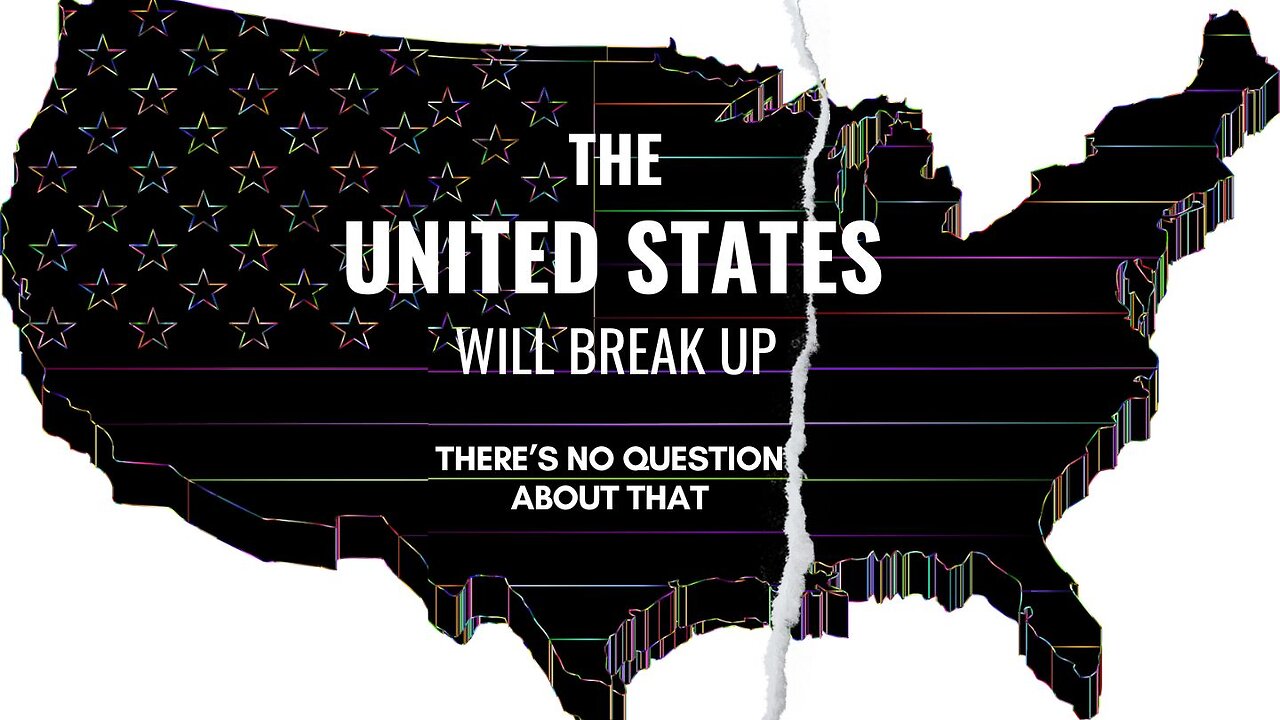Premium Only Content

The United States Will Break Up • There's No Question About That • Martin Armstrong
Political scientist Barbara F. Walter suggests that most contemporary civil wars are actually repeats of earlier civil wars that often arise when leaders are not accountable to the public, when there is poor public participation in politics, and when there is a lack of transparency of information between the executives and the public.
A civil war is a war between organized groups within the same state (or country). The aim of one side may be to take control of the country or a region, to achieve independence for a region, or to change government policies. The term is a calque of Latin 'bellum civile' which was used to refer to the various civil wars of the Roman Republic in the 1st century BC.
Most modern civil wars involve intervention by outside powers. According to Patrick M. Regan in his book Civil Wars and Foreign Powers about two thirds of the 138 intrastate conflicts between the end of World War II and 2000 saw international intervention.
A civil war is often a high-intensity conflict, often involving regular armed forces, that is sustained, organized and large-scale. Civil wars may result in large numbers of casualties and the consumption of significant resources.
Civil wars since the end of World War II have lasted on average just over four years, a dramatic rise from the one-and-a-half-year average of the 1900–1944 period. While the rate of emergence of new civil wars has been relatively steady since the mid-19th century, the increasing length of those wars has resulted in increasing numbers of wars ongoing at any one time. For example, there were no more than five civil wars underway simultaneously in the first half of the 20th century while there were over 20 concurrent civil wars close to the end of the Cold War. Since 1945, civil wars have resulted in the deaths of over 25 million people, as well as the forced displacement of millions more. Civil wars have further resulted in economic collapse; Somalia, Burma (Myanmar), Uganda and Angola are examples of nations that were considered to have had promising futures before being engulfed in civil wars.
James Fearon, a scholar of civil wars at Stanford University, defines a civil war as "a violent conflict within a country fought by organized groups that aim to take power at the center or in a region, or to change government policies".
SOURCE
Alex Jones @Infowars
Tuesday, 7/30/2024
• ArmstrongEconomics.com
• https://en.wikipedia.org/wiki/Civil_war
-
 11:19
11:19
The Aquarius Bus
10 months agoBy 1900, 38% of cars in America were electric! Wanna know how they were powered & charged?
2.25K4 -
 1:31:41
1:31:41
Redacted News
3 hours agoNew Charlie Kirk Video Evidence Could Change EVERYTHING | Redacted w Natali & Clayton Morris
165K176 -
 22:10
22:10
Jasmin Laine
3 hours ago"You Promised Them $1BILLION!?"—Liberal Gets LAUGHED Out of Parliament
7.49K12 -
 1:54:22
1:54:22
vivafrei
4 hours agoOstrich Farm UPDATE! And Live with Tyler Fischer Talking REAL Cancel Culture He is Experiencing!
167K31 -
 31:39
31:39
Michael Franzese
3 hours agoAmerica’s Human Trafficking Crisis EXPOSED by Former Mobster
29.1K12 -
 LIVE
LIVE
Wayne Allyn Root | WAR Zone
7 hours agoWatch LIVE: The War Zone Podcast with Wayne Allyn Root
54 watching -
 DVR
DVR
The Liberty Lobbyist
3 hours ago"The View From The Top: How Leadership Shapes Legislation and Responds to Activism"
4.31K -
 4:59:50
4:59:50
Barry Cunningham
7 hours agoPRESIDENT TRUMP NEEDS TO STAND FIRM AND SHUT THE GOVERNMENT DOWN IF HE HAS TO!
53.5K40 -
 23:45
23:45
IsaacButterfield
14 hours ago $1.08 earnedThe Rise of Autism in Gen Z
20.2K14 -
 LIVE
LIVE
LFA TV
1 day agoBREAKING NEWS ALL DAY! | THURSDAY 9/25/25
881 watching